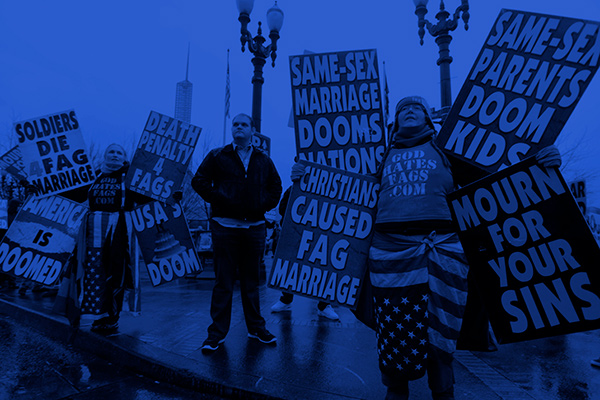Case Summary:
Snyder v. Phelps (2011)
Intentional Infliction of Emotional Distress

“Thank God for Dead Soldiers,” one of the signs said. “America Is Doomed,” read another. They were burned into the mind of Albert Snyder, the father of Lance Corporal Matthew Snyder, a Marine who was killed in Iraq in 2006. Snyder couldn’t forget the signs because they had been present at his son’s funeral, part of a protest by the Westboro Baptist Church. His suit against Fred Phelps and Westboro claimed defamation, invasion of privacy and the intentional infliction of emotional distress. While the District court judge agreed, and a jury awarded the Snyders $5 million in damages, the Snyders lost before the US Supreme Court and ultimately ended up responsible not only for their own legal costs but also for those of the organization they had been suing.
In an 8-1 decision, Chief Justice John Roberts explained that “whether the First Amendment prohibits holding Westboro liable for its speech in this case turns largely on whether that speech is of public or private concern.” In this case, Westboro’s speech dealt with “matters of public import,” addressing such topics as “the political and moral conduct of the United States and its citizens, the fate of our Nation, homosexuality in the military, and scandals involving the Catholic clergy,” and was thus protected under the First Amendment. As well, the speech was not an invasion of privacy, as the picketers were some 1,000 feet away from the service, on public land, and did not interfere with the service. The lone dissenter, Justice Samuel Alito, sympathized with Snyder and found the speech “vicious” and a “brutal attack”: “Respondents’ outrageous conduct caused petitioner great injury, and the Court now compounds that injury by depriving petitioner of a judgment that acknowledges the wrong he suffered.”
Additional Resources